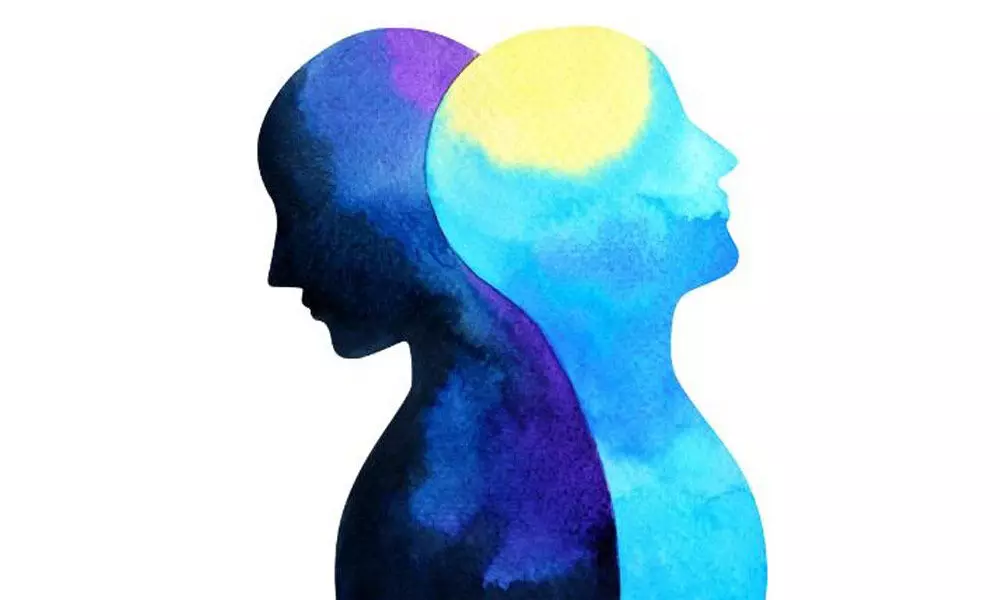Walking the Talk: Combating mental health crises
The stigma around mental illnesses can be best countered if we accept our complicity in creating the conditions which cause them
image for illustrative purpose

INDIA and the world today are grappling with mental illnesses on an unprecedented scale. The Economic Times reports that according to an estimate by the World Health Organisation (WHO), mental illness makes about 15 per cent of the total disease conditions around the world and the same estimate also suggests that India has one of the largest populations affected from mental illness. While there is a palpable conversation around mental health today, there is also a heavy reliance on quick fixes and superficial declarations and assurances. There is next to no discussion on consequential matters such as the labour and resources to be directed towards ailing people, policy changes by the government and building a communitarian culture where stigmas against mental illnesses are countered.
In 2020, as India witnessed several lockdowns due to the Covid-19 pandemic and while only a fraction of the millions afflicted with mental health troubles sought help in a pre-pandemic scenario, therapy shifted online and became distant and inaccessible to many. News18 documented stories of individuals who complained about online therapy sessions being expensive for the service they provided. Government help lines were flooded with calls. While the pandemic did worsen the mental health statistics on the whole, it also highlighted our general lack of preparedness to deal with such crises.
The cultural dimension to the situation is equally significant. Social media is inundated with people's declarations of being available for help and support during difficult times for mental well-being and yet, these have amounted to a shallow impact in the absence of real effort and open conversations. Mentally healthy individuals, in a privileged position, create an insurmountable path to being 'normal', consolidating the divide, as an ailing individual, with his/her/their respective trajectories in life is less likely to feel safe in the company of 'normal' people. There are consistent reminders about who is supposed to be a usual healthy person, and symptoms such as anxiety and irritability are often demonised and shamed. Consequently, any mental health trouble is recognised, even in the most progressive of circles only when it becomes visibly disruptive and preventions are seldom taken. Mental healthcare itself is another contentious aspect, as the quality and availability of the same is rarely evaluated and problematised. Problems in this arena range from struggles to find good therapists, effects of unsuitable treatment, and concerns around individual privacy to simply, mental health help lines not working in dire hours. Therapy is often promoted popularly as the quick solution for several mental troubles, without any regard for its messy and uncomfortable sides where individual experiences can vary vastly.
To start dealing with this quagmire, we need to start engaging in the right conversation, which includes suitable concerns and not merely lip-service and convenient assertions. To begin, we need to foster a culture of sensitivity where we start accepting psychological ups and downs as part of the normal lives we lead. Our everyday situations are the breeding grounds for mental illnesses and once we start looking at how societal normalcy itself produces stress and discomfort, people will be more likely to open up about signs of depression, anxiety and other problems.
We must alter our responses to mental health issues and put an end to patterns where individuals are called "deranged" and "lunatic". 'Madness' is culturally dubbed as shameful and that prevents an appropriate and sensitive examination of mental health distress. The stigma around mental illnesses can be best countered if we accept our complicity in creating the conditions which cause them. From that acknowledgement, we can build safe spaces for healing, reflection and empathy.
The next step is to build mechanisms for the nation-state and the society to cope with this enormous crisis. Greater funding and resource allocation must be demanded of governments, which should result in a larger number of people engaged in running mental health help lines and services. There should be consistent review of therapy and rules must be placed in order to protect individual privacy. Infrastructural changes are a must as well- Research Matters reported how a parliamentary questionnaire in 2019 revealed that India has only 43 government mental hospitals spread across 21 states and among the union territories, only Delhi has a solitary mental hospital, while smaller states like Uttarakhand have none. As citizens, we need to demand this situation to be remedied with greater diverting of resources to set up adequate mental health facilities across the country.
On the whole, there is a pressing need to move beyond our obsolete, insubstantial and misdirected efforts to counter mental health crises. An aware, sensitive, empathetic citizenry which invests in action and in walking the talk can be crucial in realizing positive changes in the mental health landscape of India.
(The author is founder, Upsurge Global, and Senior Advisor, Telangana State Innovation Council)

